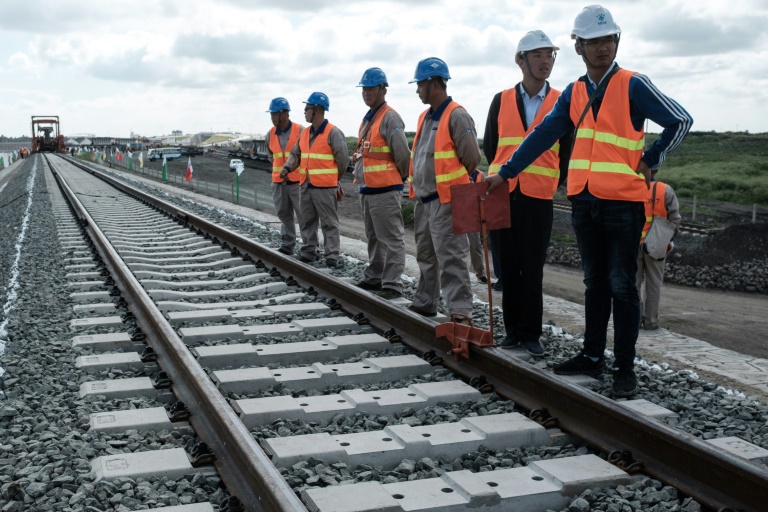
China’s President Xi Jinping says trade with Belt and Road countries has exceeded $5 trillion.
/AFP
China’s massive and expanding “Belt and Road” trade infrastructure project is running into speed bumps as some countries begin to grumble about being buried under Chinese debt.
First announced in 2013 by President Xi Jinping, the initiative also known as the “new Silk Road” envisions the construction of railways, roads and ports across the globe, with Beijing providing billions of dollars in loans to many countries.
Five years on, Xi has found himself defending his treasured idea as concerns grow that China is setting up debt traps in countries which may lack the means to pay back the Asian giant.
“It is not a China club,” Xi said in a speech on Monday to mark the project’s anniversary, describing Belt and Road as an “open and inclusive” project.
Xi said China’s trade with Belt and Road countries had exceeded $5 trillion, with outward direct investment surpassing $60 billion.
But some are starting to wonder if it is worth the cost.
During a visit to Beijing in August, Malaysia’s Prime Minister Mahathir Mohamad said his country would shelve three China-backed projects, including a $20 billion railway.
The party of Pakistan’s new prime minister, Imran Khan, has vowed more transparency amid fears about the country’s ability to repay Chinese loans related to the multi-billion-dollar China-Pakistan Economic Corridor.
Meanwhile, the exiled leader of the opposition in the Maldives, Mohamed Nasheed, has said China’s actions in the Indian Ocean archipelago amounted to a “land grab” and “colonialism,” with 80 percent of its debt held by Beijing.
Sri Lanka has already paid a heavy price for being highly indebted to China.
Last year, the island nation had to grant a 99-year lease on a strategic port to Beijing over its inability to repay loans for the $1.4-billion project.
“China does not have a very competent international bureaucracy in foreign aid, in expansion of soft power,” Anne Stevenson-Yang, co-founder and research director at J Capital Research, told AFP.
“So not surprisingly they’re not very good at it, and it brought up political issues like Malaysia that nobody anticipated,” she said.
“As the RMB (yuan) becomes weaker, and China is perceived internationally as a more ambiguous partner, it’s more likely that the countries will take a more jaundiced eye on these projects.” /
Disclaimer: The comments uploaded on this site do not necessarily represent or reflect the views of management and owner of Cebudailynews. We reserve the right to exclude comments that we deem to be inconsistent with our editorial standards.
